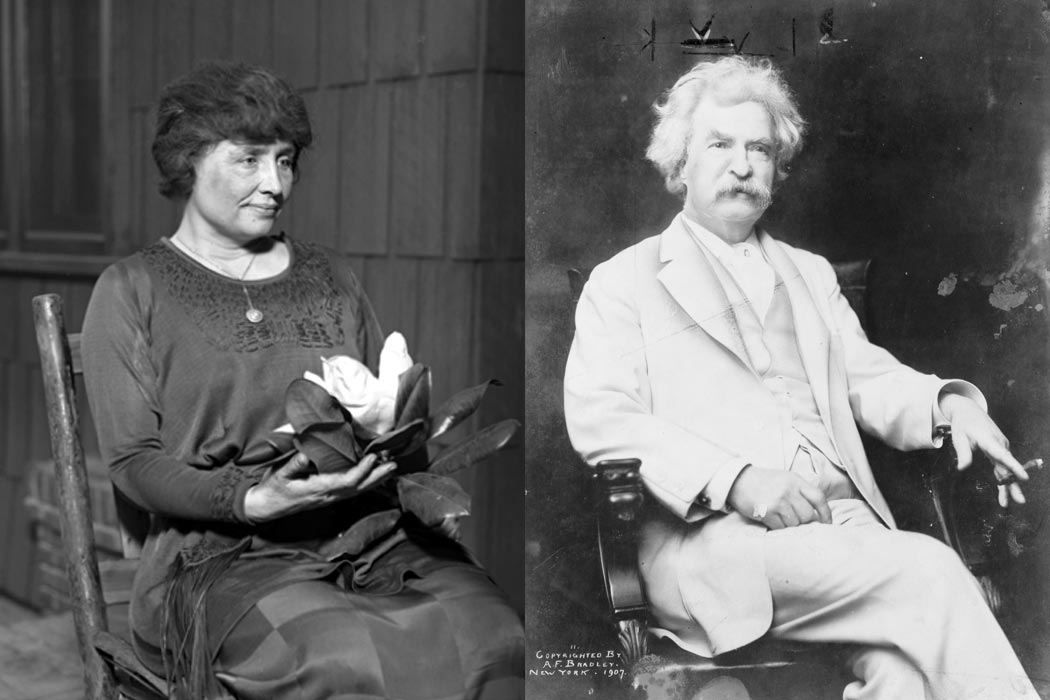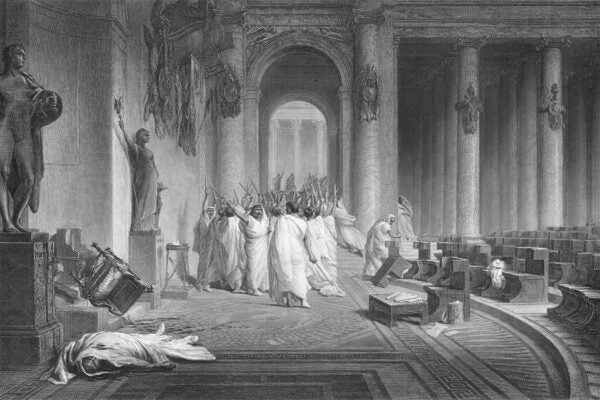Matthew Perry’s TV reboot of The Odd Couple hearkens back to Neil Simon’s play, which debuted 50 years ago and became a Broadway hit, an award-winning sitcom, and a national phenomenon. But though Felix and Oscar notoriously inspired characters like Bert and Ernie, go back a bit further in history and you’ll find an even odder couple—one of the nation’s greatest raconteurs and a woman known for her inability to speak, hear, or see.
Helen Keller met Mark Twain when she was just 14 years old. By 1895, Samuel Clemens was in his fifties and had already achieved worldwide fame for his conversation, wit, and voluminous writing. In contrast, Helen was a teenager who had struggled to gain access to an education despite her physical disability (she was struck deaf and blind at 19 months after a brief illness). They met when a mutual friend held a luncheon for Helen, who was studying at the Wright-Humason School for the Deaf in New York.
“From that day until his death we were friends,” Keller recalled later. She was already a fan of his work and thrilled to his deep voice and his many hand gestures, which she followed with her own fingertips. He also treated her like an equal, “not as a freak but as a handicapped woman seeking a way to circumvent extraordinary difficulties.”
Though Helen hailed from a respectable Southern family, 19th-century America was flummoxed by the prospect of teaching a deaf-blind girl to talk, read, and learn. Helen’s tutor and governess, Annie Sullivan, fought for her admission to various schools that offered special education. But the cost of educating someone like Helen was high. Amy Chambliss writes that a charmed Clemens wrote to a rich friend on her behalf:
It won’t do for America to allow this marvelous child to retire from her studies because of poverty. If she can go on with them she will make a fame that will endure in history for centuries. Along her special illness she is the most extraordinary product of all the ages…lay siege to your husband & get him to interest himself and Messrs. John D. & William Rockefeller & the other Standard Oil chiefs in Helen’s case; get them to subscribe an annual aggregate of six or seven hundred or a thousand dollars- & agree to continue this for three or four years, until she has completed her college course….
With the support of Standard Oil, Helen was able to complete her education and graduate cum laude from Harvard’s Radcliffe College. Clemens and Keller remained friends for the rest of his life. They shared an interest in radical politics and a love for life despite their different temperaments. Helen, an avowed optimist, often made fun of Clemens for his avowed pessimism, telling him she didn’t believe a word of his sardonic jokes. As for Clemens, Chambliss writes that he felt she was one of the most important historical figures of all time, “the most wondrous person of her sex that has existed on this earth since Joan of Arc.”
The unlikely friendship lasted until Clemens’ death in 1910. Keller went on to become a world-famous personality and even a successful diplomat—perhaps the most famous American since her odd friend and mentor.







